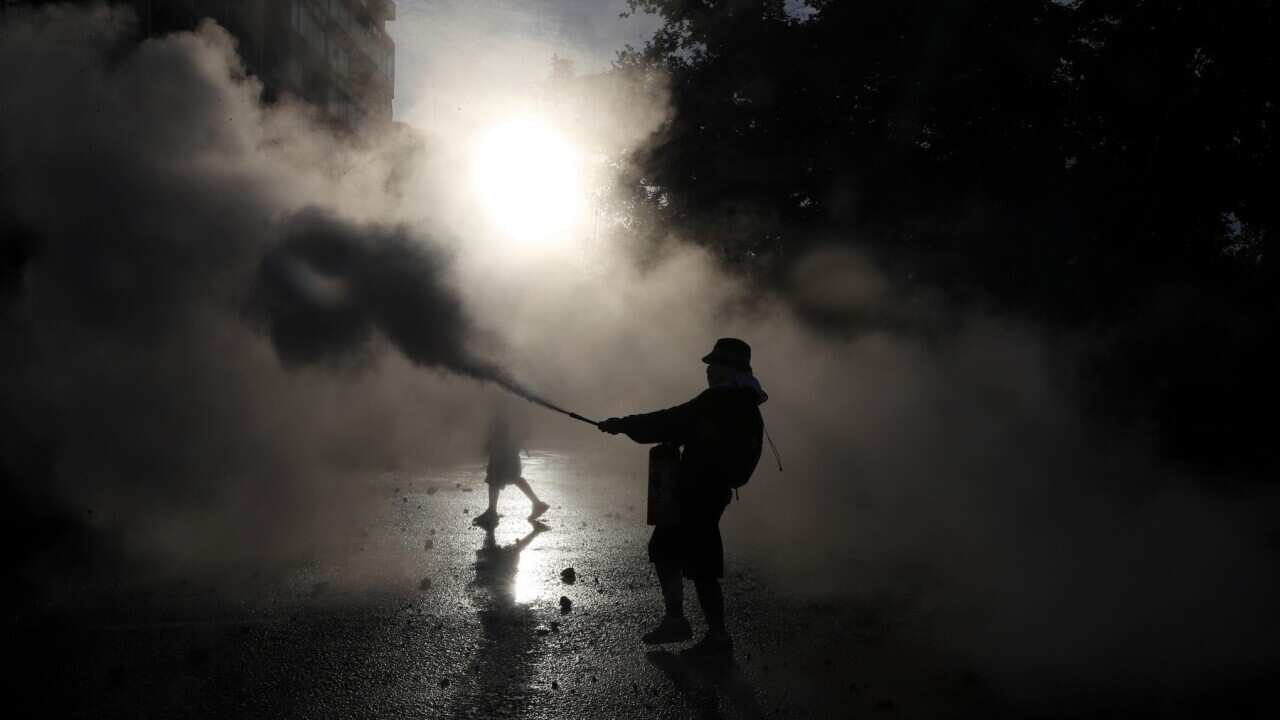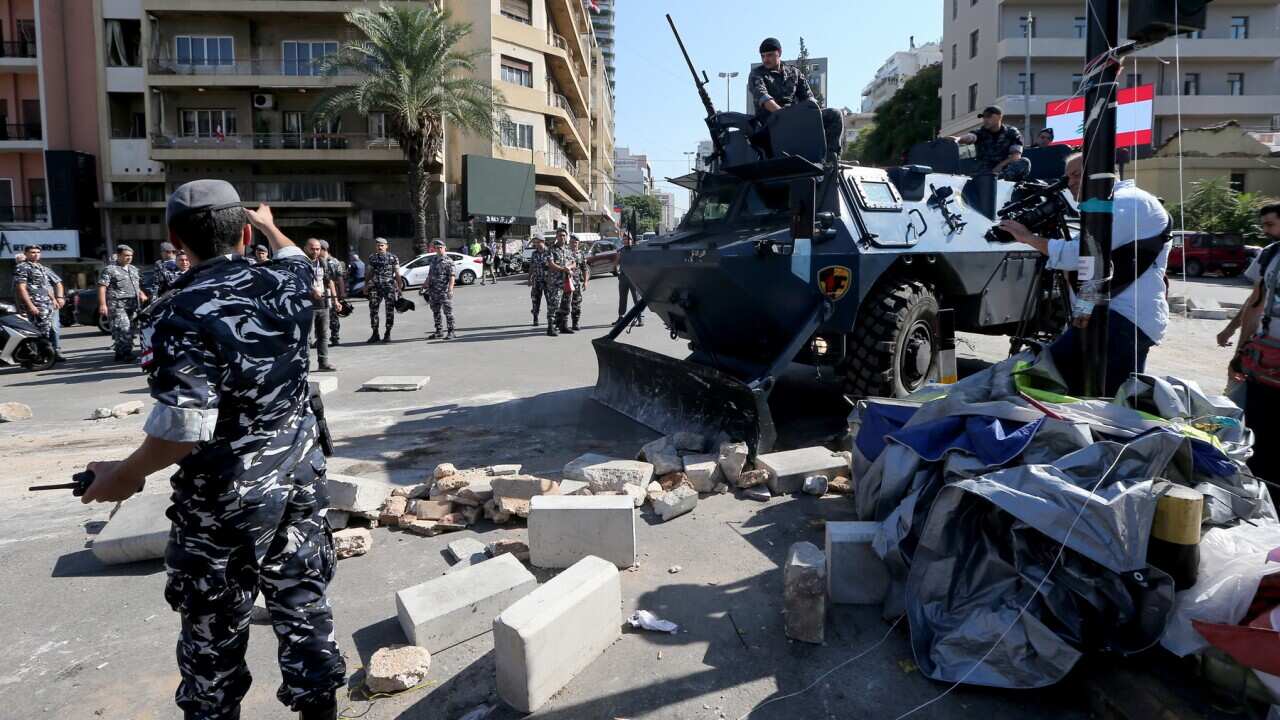Large scale street protests have galvanised communities across the world, with millions taking part in political demonstrations. From Hong Kong to Chile, angry citizens have taken their anger to the streets: halting traffic, slowing economies, and in some cases, forcing the resignation of politicians.
Although these movements have risen from countries across different continents and cultures, common themes have emerged. Demonstrators are demanding political freedom and say they are fed up with government corruption and inequality.
The contagion effect
Lecturer in internet communications at Curtin University Dr Sky Croeser said while it may seem like a domino effect, each group has its own unique set of grievances. She suggests they may be looking to each other for tactics and support.
"I think there are moments of being inspired and learning from each other. Historically that has always been the case. " she told Dateline.
There has always been a sense of international solidarity and inspiration.
Lebanon
Who and why
Hundreds of thousands of protesters have taken to the streets in the past two weeks in response to a looming economic crisis, government corruption and social inequality. The scale of the movement has shut down schools, universities and businesses. The protests have cut across political and religious divides.
The demonstrations were sparked by a government proposal for additional taxes, including a charge on internet calling services such as WhatsApp.
As the movement galvanised, others blamed the country's political structure, inaction over recent wildfires and a declining economy.
What's happened?
This week, Saad Hariri announced his resignation as prime minister, in the fallout of the protests. The leader said a "shock" was needed to resolve the crisis and he had reached a "dead end."
The government is now in "caretaker mode". Despite Mr Hariri's resignation, politicians are scrambling to address the unrest in the country - and protests are ongoing.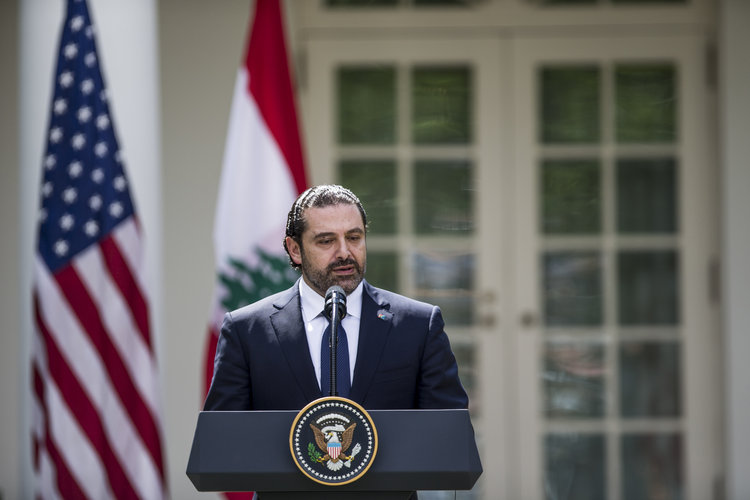

Lebanon’s Prime Minister, Saad Hariri, steps down in face of protests. Source: The New York Times
Chile
Who and why
A public transport fare-hike triggered mass protests in Chile, with thousands of swarming metro stations after the announcement.
The student-led protests quickly swelled into a greater movement against social inequality and the government's economic management. Over a million people have taken to the streets throughout Chile since demonstrations began.
One of the rallying cries has been, "It's not $30, it's 30 years," referring to the economic instability since the end of Chile's military dictatorship.
Protests have become violent, with at least 19 people estimated to have died.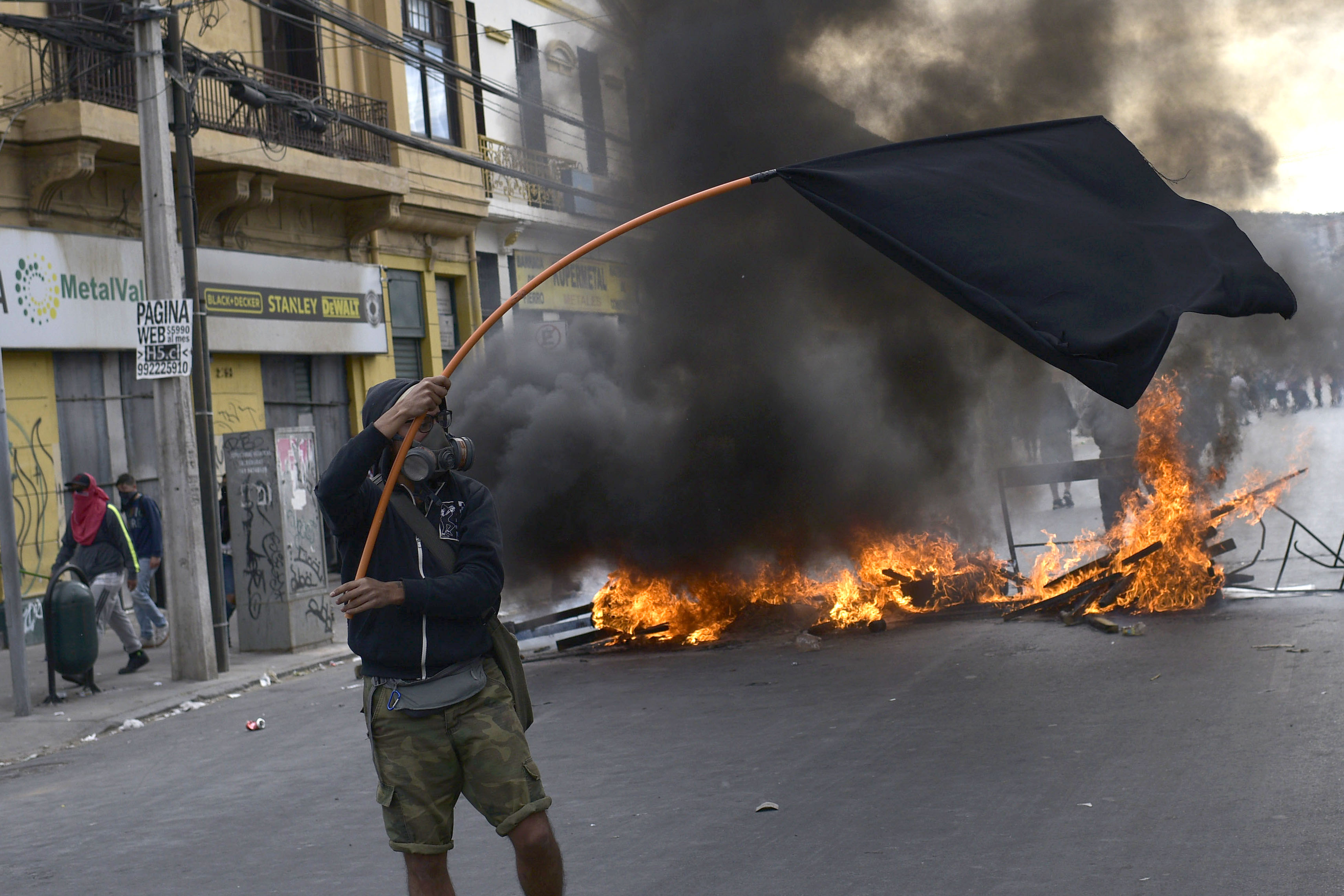 What has happened?
What has happened?

Demonstrators clash with security forces during a demonstration in Valparaiso, Chile. Source: AFP
President Sebastián Piñera has cancelled two major summits - the Asia-Pacific Economic Cooperation (APEC) and COP25, the 2019 United Nations Climate Change Conference - amid the "difficult circumstances".
"This has been a very difficult decision – which has caused us great pain – because we understand perfectly the importance [of the events] for Chile and for the world," he said.
Daily marches continue through Chile, calling for Mr Piñera's resignation.
In a statement, the UN's climate change executive secretary, Patricia Espinosa, said: "Earlier today, I was informed of the decision by the government of Chile not to host COP25 in view of the difficult situation that the country is undergoing. We are currently exploring alternative hosting options."
Hong Kong
Who and why
Hong Kong citizens have been demonstrating for over five months in what has become one of the world's longest ongoing protests.
The movement was sparked by Hong Kong leader Carrie Lam's controversial extradition bill between the territory and China. The bill prompted calls for democracy and a separation from China.
Protest organisers claim not to have a leader and have outlined five demands:
- Full withdrawal of the extradition bill
- Commission of inquiry into alleged police brutality
- Retracting the classification of protesters as "rioters"
- Amnesty for arrested protesters
- The resignation of Carrie Lam and universal suffrage for Hong Kong parliament
What has happened?
Since the start of the movement in March, protesters have stormed the Hong Kong parliament, shut down the airport and blocked major highways.
There have been violent clashes between protesters and police. Some demonstrators have leveled allegations of police brutality, which law enforcement reject.
Ms Lam formally withdrew the extradition bill in October, but protests continue as participants' other demands have not yet been met.

The city of Hong Kong has been wracked by weeks of protests fuelled by growing political unease. Source: AP
Iraq
Who and why
Demonstrations have shaken Iraq since the beginning of October, with hundreds and thousands protesting in Baghdad and southern parts of the country.
Iraqis say they are furious at political elite and sectarian power-sharing. Citizens are calling for the end of a political system that has led the country, since a US invasion toppled Saddam Hussein in 2003.
Demonstrators say the sectarian approach to government has allowed people to be appointed based on quotas, rather than merit. Angry Iraqis claim this has led to corruption, the downfall of their economy and high unemployment.
What has happened?
Protests have created a volatile environment, with more than 100 people reportedly killed since unrest began.
Iraq's most powerful politicians have appeared to withhold support for Prime Minister Adel Abdul Mahdi as protests swelled.
It is not clear if Mr Abdul Mahdi will resign or what will quell the unrest in the country.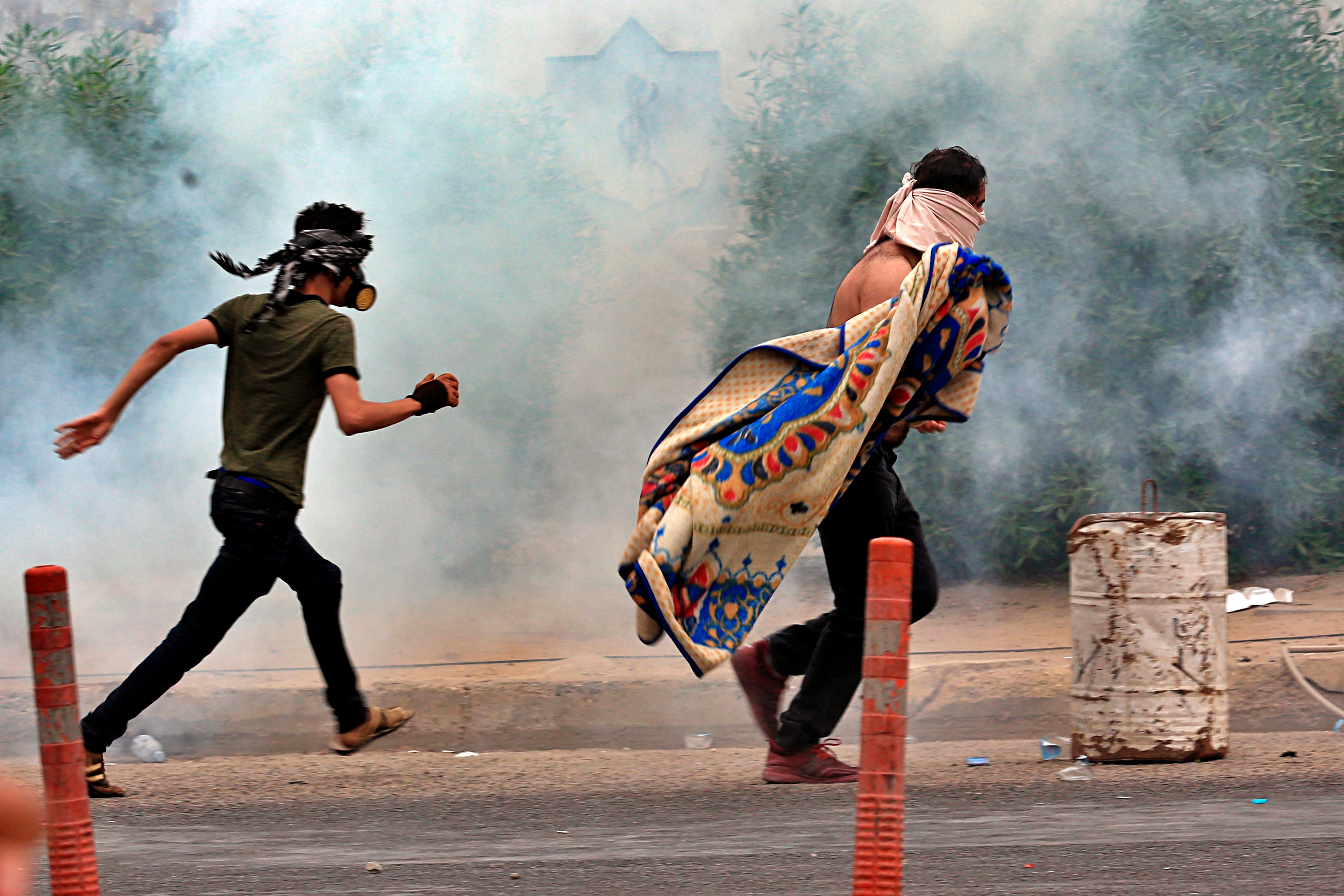

Iraqi security forces fire tear gas while anti-government protesters try to break into a council building. Source: AP
Pakistan
Who and why
Tens of thousands of protesters are demanding the resignation of Prime Minister Imran Khan as they march to the country's capital Islamabad from Karachi.
The movement has been dubbed the Azadi March - or Freedom March - and focuses on the conflict over the disputed region of Kashmir and economic instability.
The protests have been backed by the government's political rivals.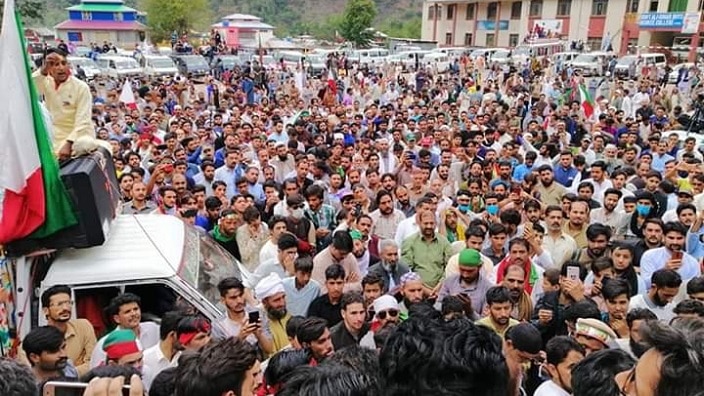 What has happened?
What has happened?

JKLF protesters at the march in Pakistan-administered Kashmir, October 2019 Source: Supplied
Authorities say extra police will patrol the capital as a wave of protesters arrive.
The march represents the first major challenge to Prime Minister Imran Khan's government. Khan has labelled the march as an attempt to "blackmail" his government and has rejected reconciling with his political opponents.



